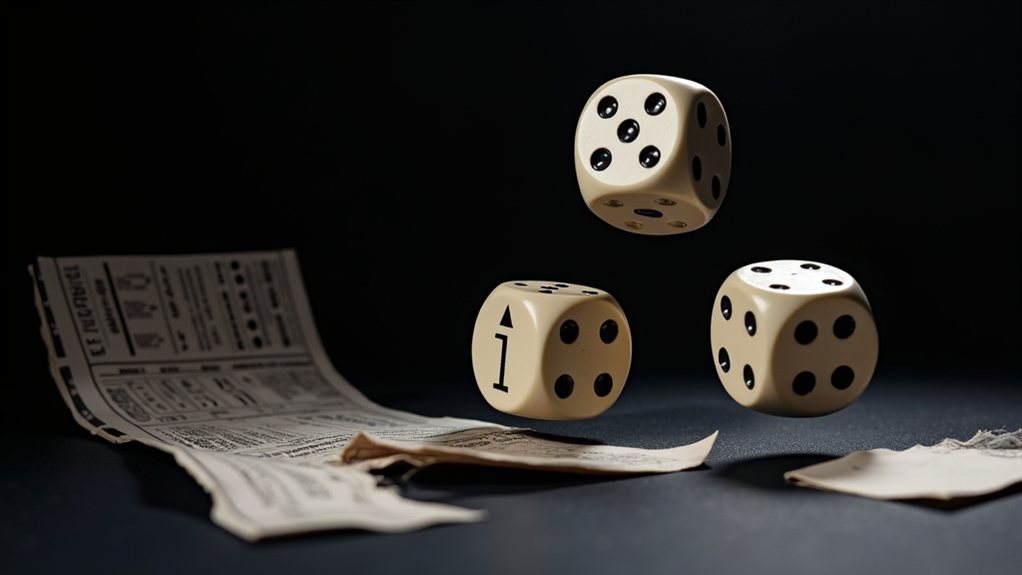The Green Lumber Problem exposes a critical gap between theoretical knowledge and practical success in competitive markets. Many “experts” focus on irrelevant details while missing what truly drives results. Our analysts have witnessed this phenomenon across five decades of market observation. Smart bettors understand that practical experience trumps academic credentials every time. The most profitable traders often lack conventional expertise but possess superior instincts for market movement. Don’t miss our upcoming breakdown of how this principle can immediately improve your decision-making process.
When Theory Clashes With Successful Practice

Why do successful traders sometimes know nothing about the products they’re trading? Consider the legendary commodity trader who made millions trading “green lumber” while believing it referred to painted wood, not freshly cut timber.
This reveals a fundamental truth about market success: practical knowledge beats theoretical understanding.
Industry veterans in their fifth decade of trading succeed because they understand market movements, not product specifications. Traders who deliver real-world results focus on action-oriented insights rather than academic theories. The disconnect between theoretical lectures and acquiring real-world skills highlights why practical engagement matters more. Incorporating constructive conflict between differing trading perspectives often leads to more innovative market strategies.
The market rewards those who master price action, not textbook knowledge.
Similar to how mobile betting has transformed sports gambling by focusing on user experience over complex odds calculations, successful traders prioritize what works over theoretical knowledge. Just as setting limits is a key responsible gambling habit, successful traders establish clear boundaries for their market exposure.
The gold standard for evaluating expertise lies in performance, not credentials. Don’t miss out on this market wisdom that separates winners from losers!
Mistaking Academic Knowledge for Practical Wisdom

The distinction between academic knowledge and practical wisdom represents a crucial insight for market participants seeking consistent success. Many traders who excel academically fail in real markets because they mistake theory for practical know-how.
Top performers often succeed through hands-on experience rather than theoretical understanding. While academics might analyze market patterns extensively, seasoned traders develop intuitive skills through repeated exposure to real conditions. Aristotle distinguished this as phronesis, knowing what is good or best in specific circumstances.
This experiential wisdom proves more valuable than textbook knowledge. This parallels successful sports bettors who understand that implementing value betting strategies requires practical experience beyond theoretical understanding. Proper bankroll management is essential for surviving inevitable market downturns and maximizing profits during successful periods. Employers recognize this reality, preferring candidates with proven track records over impressive degrees but limited experience.
The path to trading mastery requires field experience, not just classroom learning.
The Danger of Post-Hoc Narratives in Decision Making

Just as hands-on experience trumps book smarts in trading, decision makers must guard against falling prey to post-hoc narratives when evaluating success or failure.
Organizations constantly craft explanations after results emerge, rather than honestly examining what drove outcomes.
The dangers of post-hoc rationalization include:
- Misattributing causation based on sequence rather than evidence
- Abandoning promising initiatives due to flawed narratives
- Encouraging action bias over careful reflection
- Allocating resources inefficiently by focusing on stories instead of data
Smart decision makers, like champion sports handicappers, focus on real-world results rather than elegant theories.
Our gold standard approach prioritizes data-driven analysis over narrative explanation.
Don’t miss out on the winning formula!
Balancing Intellectual Understanding and Real-World Results
Balancing intellectual understanding with real-world results requires decision makers to recognize when theoretical knowledge might impede practical success.
Many successful traders don’t need extensive market theory—they simply know what works. Like our gold standard handicappers with fifth decade experience, they focus on practical wisdom rather than academic narratives.
The Green Lumber Problem shows that practical competence trumps theoretical expertise. Our proven system utilizes this reality, delivering winners without getting lost in complex explanations.
Don’t Miss Out on our actionable insights that transform knowledge into profitable outcomes!
Smart bettors know that real-world results, not theories, ultimately determine success in sports wagering.
As Anthony Best demonstrates in his approach to sports betting, professional handicappers rely on careful analysis and bankroll management rather than theoretical models.
FAQs
Can the Green Lumber Problem Affect Personal Investment Decisions?
Over 80% of retail investors underperform market indices. The Green Lumber Problem affects personal investment decisions when individuals prioritize theoretical knowledge over practical market dynamics, often leading to suboptimal financial outcomes.
How Do Entrepreneurs Successfully Navigate the Green Lumber Fallacy?
Successful entrepreneurs navigate the Green Lumber Fallacy by prioritizing results over theory, embracing trial-and-error, adapting quickly to market feedback, and valuing practical experience above academic understanding of their industry.
Does the Green Lumber Problem Apply in Creative Fields?
The Green Lumber Problem applies strongly in creative fields, where practitioners often succeed through intuitive craft mastery rather than theoretical knowledge. Success frequently emerges from doing rather than intellectualizing the creative process.
Can Organizations Test if They’re Suffering From Misguided Expertise?
Organizations can identify misguided expertise by examining if success stems from theories versus outcomes. Revealing tests include tracking practical results, conducting blind performance evaluations, and challenging conventional wisdom through alternative approaches that liberate true value.
How Does Technology Advancement Affect the Green Lumber Problem?
Technology advancement intensifies the Green Lumber Problem by creating gaps between theoretical knowledge and practical skill, while simultaneously offering tools that can either improve or diminish hands-on expertise through increasing information accessibility.









